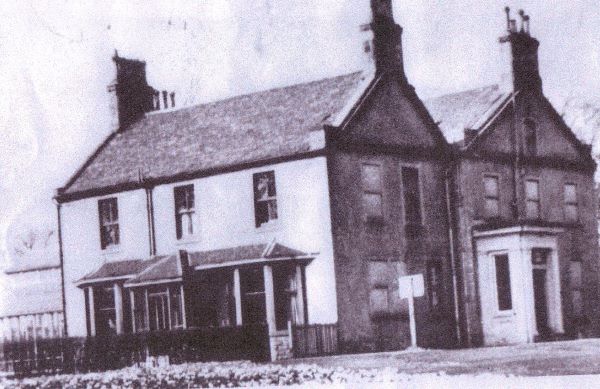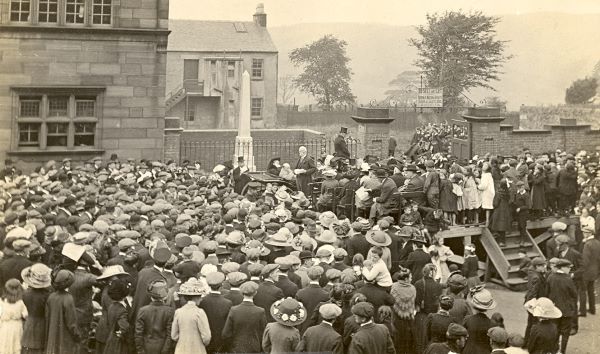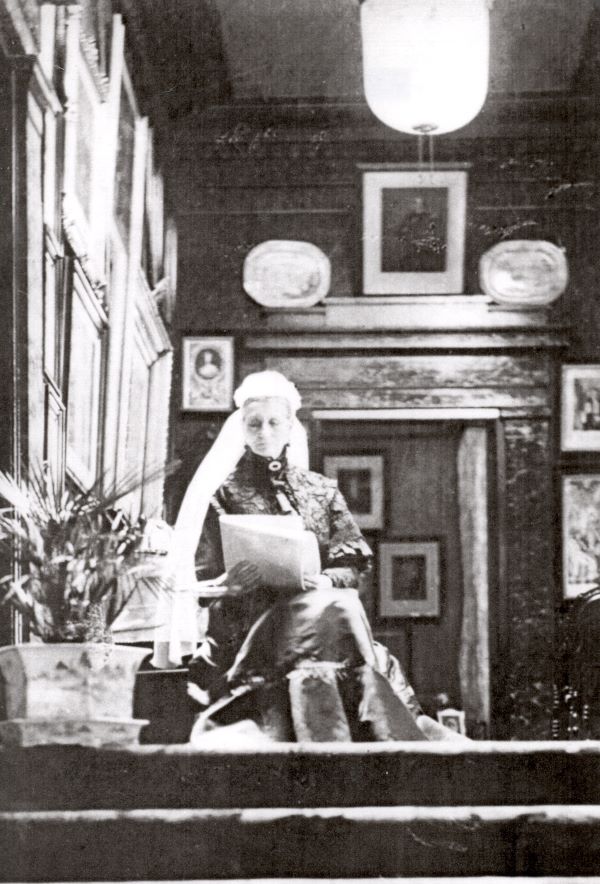

Margaret Pollock Glen
Margaret Pollock Glen (1824 – 1913)
In the Barrhead News of 9th May 1913, the sad passing of one of Barrhead and Neilston’s most beloved residents was reported. Margaret Pollock Glen, or ‘Lady Glen’ as she was fondly known, had lived in the parish since childhood. Having inherited great wealth in middle age, she was a prolific benefactor and used her fortune to help public causes and those less fortunate.
Margaret was born at Malletsheugh Farm, Mearns in 1824 to farmer Robert Pollock and his wife Elizabeth (Craig). They moved to North Walton Farm in Neilston and Margaret spent most of her childhood in the village, attending the parish school and church. On the 20th October 1844, Margaret married Robert Corse Glen and by 1851, they were farming 166 acres at Auchenback Farm, Barrhead and employing 4 labourers.
Around 1870, Margaret’s uncle, Robert Craig (known as Rhoosan Rab) died childless, leaving her his considerable fortune, amassed from interests in the Newsky Mill, St. Petersburg. In 1870, the couple bought Carlibar House, and moved into Hillside Cottage at Gateside while renovations took place. Sadly, on the 21st March 1871, after 26 years of marriage, Robert Glen died suddenly from Rheumatic Fever. Widowed at 47, Margaret moved into Carlibar House, spending the rest of her life there. At his time of death Robert was listed as a cotton spinner and manufacturer having evidently given up farming.

Photograph of Carlibar House courtesy of the Barrhead & Neilston Historical Association
Amongst her public gifts to the parish were: the Glen Halls, Neilston, which were built in memory of her husband; the Volunteer Hall and drill instructor’s house, also in Neilston; £1000 towards the building of the Municipal Buildings in Barrhead; the Provost’s gold chain and badge of office; the memorial windows in Neilston Parish Church and numerous school bursaries and prizes. She also donated a piece of land next to the Glen Halls where the Robertson memorial was originally sited. However, she made many private gifts to those in need and was also said to pay regular visits to villagers who were sick or in difficulty.

Her funeral was attended by many of the most prominent people of the parish. Her coffin bearers included Major Pollock and Zechariah George Heys of the South Arthurlie Printworks, and members of the town council, school board and parish council came to pay respects. Services took place in Neilston Church and Carlibar house, conducted by ministers from four different local churches. Public signs of mourning could be seen all over the parish with flags at half mast, most of the shops closed and window blinds drawn. Pupils from Cross Arthurlie and Grahamston Schools lined the route of the funeral procession. Forty coaches conveyed mourners and two open carriages were heaped with floral tributes.

Carlibar House was left to Major Pollock, but Margaret’s generosity towards charitable causes continued through her will, with bequests being left to the RNLS, the Western Infirmary, the Royal Infirmary, the Victoria Infirmary, the Royal Alexandria Infirmary, Mr Quarrier’s orphan homes, the Glasgow Renfrewshire Society and the Glasgow Fresh Air Fortnight Scheme. £3000 was left for the building of a new parish church at Neilston and the Craignewsky Memorial Bequest was set up 1) to provide coal (20 tonnes per annum) for the poor of Barrhead and Neilston, 2) to pay Neilston Kirk Session £10 per annum for relief of the poor, 3) to provide annuities to necessitous persons and 4) to give subscriptions and donations to local charitable and philanthropic institutions.
At a meeting of the town council held on 5th May 1913, the following tribute was paid:
The Provost moved that, in consequence of the death of Mrs. Margaret Pollock Glen of Carlibar, on Second instant, we record our esteem and respect for the deceased: our deep sense of loss in her demise; our acknowledgment of the nobility of her life and character and of her high aims; our gratitude for her charitable acts and deeds; our appreciation of her desire to assist in promoting the best welfare of the community, of her willingness at all times to assist in all that tended to relieve and alleviate distress and poverty, of her kindly consideration and support of all schemes calculated to further the general wellbeing, and of her sterling probity and humility. Further, that we record our sympathy with the friends and relatives in their bereavement, and that this resolution be communicated to them. Ex-provost Shanks seconded and the resolution was unanimously agreed to.
These sentiments were echoed all across the local community about a lady who had used the advantages that life had afforded her to help improve the circumstances of local people.
